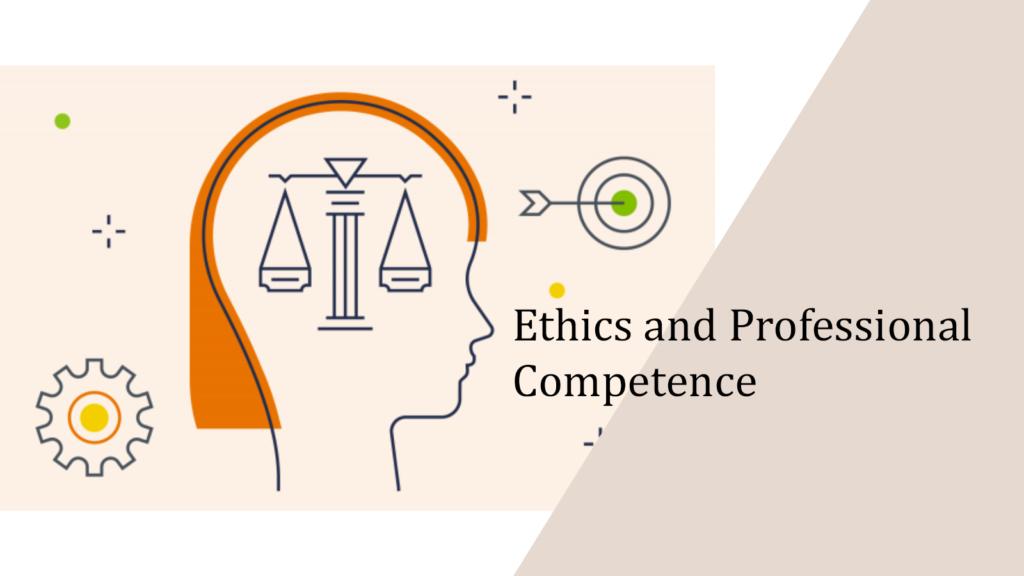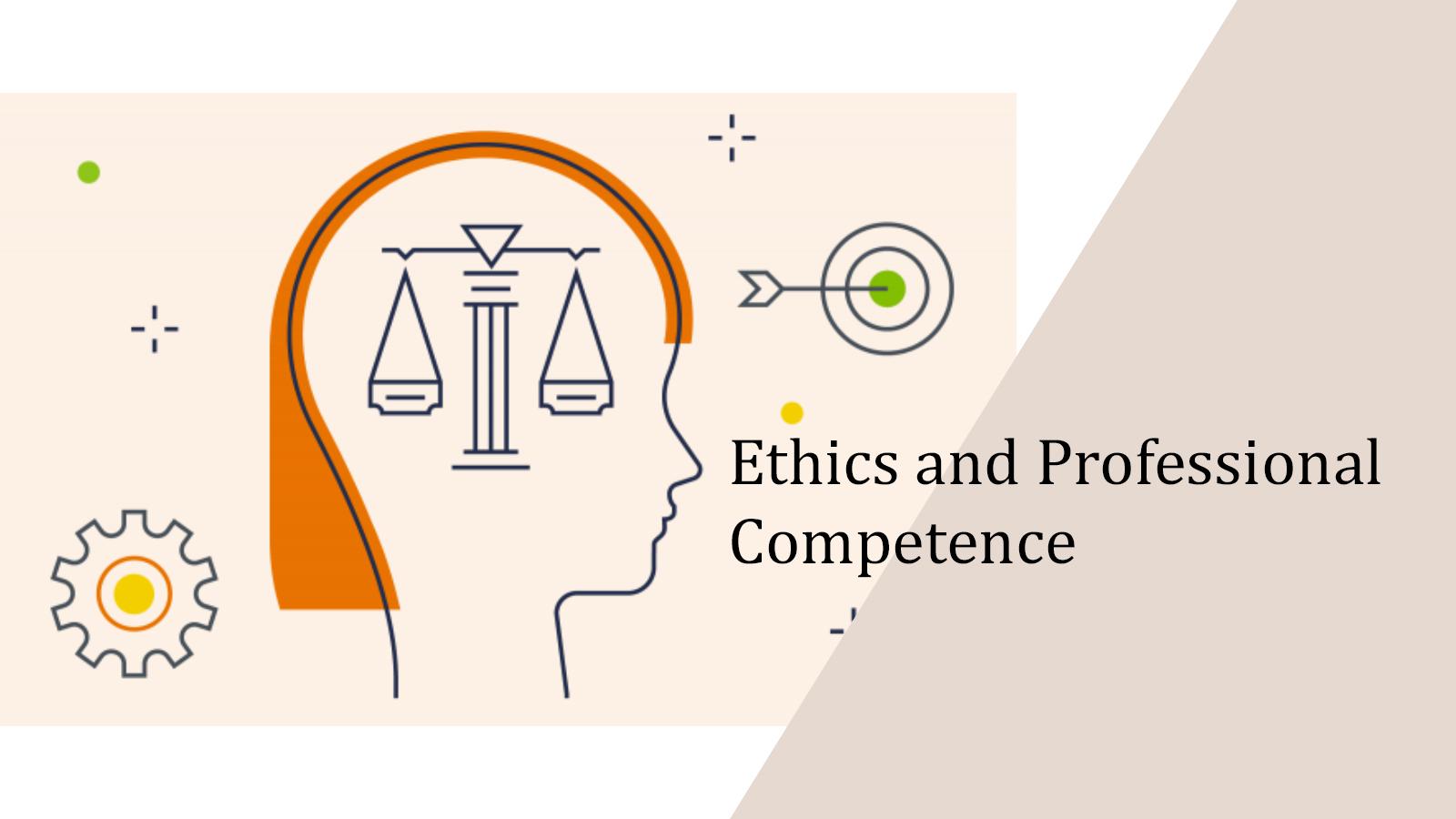What do you understand by ‘values’ and ‘ethics’? In what way is it important to be ethical along with being professionally competent?
Values are fundamental beliefs and principles that guide an individual’s behavior, decisions, and actions. These values are shaped by personal experiences, cultural background, and societal norms, and they provide the foundation for one’s moral and ethical principles.
Ethics, on the other hand, refer to the systematic study of moral principles and values. It is concerned with what is right or wrong and involves examining the nature of morality and moral issues, as well as making decisions based on these principles.
Being both ethical and professionally competent is essential in today’s society, as it helps to establish trust, credibility, and confidence in one’s professional dealings. Ethical behavior promotes fairness, justice, and transparency, and it helps to create a positive organizational culture and better relationships with stakeholders.
Moreover, being ethical helps maintain personal integrity, and it can have a positive impact on one’s reputation and career. It also ensures the well-being of others, the preservation of the environment, and the protection of human rights. In short, being both competent and ethical is crucial for professionals who want to make a positive impact in the world and maintain a strong sense of personal and professional fulfillment.
What does ethics seek to promote in human life? Why is it all the more important in public administration?
Ethics seeks to promote several key values in human life, including:
- Moral responsibility: Ethics emphasizes the importance of individual responsibility and accountability in decision-making and behavior.
- Fairness and justice: Ethics promotes the ideals of fairness and justice, and seeks to ensure that all individuals are treated equally and with dignity.
- Honesty and integrity: Ethics promotes transparency and truthfulness in all dealings, and emphasizes the importance of maintaining personal and professional integrity.
- Respect for others: Ethics emphasizes the importance of treating others with respect, dignity, and compassion, and seeks to protect the rights and well-being of all individuals.
In public administration, ethics is all the more important because public officials are charged with serving the public good and making decisions that impact the lives of many individuals. Ethical behavior helps to build trust and credibility in government, promote transparency and accountability, and ensure that public resources are used responsibly and for the benefit of all citizens.
Therefore, it is essential that public officials maintain high ethical standards and conduct themselves with integrity and professionalism in order to promote a fair, just, and democratic society.
What do you understand by ‘probity’ in public life? What are the difficulties in practicing it in the present times? How can these difficulties be overcome?

Probity refers to the quality of being honest, impartial, and having high ethical standards, particularly in the context of public life. It is an essential element of good governance and is crucial for building trust and confidence in public institutions and officials.
However, practicing probity in public life can be difficult in the present times due to several factors, including:
- Corruption: Corruption and unethical practices are widespread and pose a major challenge to the promotion of probity in public life.
- Political influence: Political pressure and influence can compromise the impartiality and independence of public officials and undermine their ability to act with probity.
- Lack of transparency: A lack of transparency in decision-making and resource allocation can also make it difficult for public officials to act with probity.
To overcome these difficulties, several steps can be taken, including:
- Strengthening legal frameworks and implementing anti-corruption measures.
- Encouraging greater transparency and accountability in public institutions and decision-making processes.
- Providing training and education on ethics and probity for public officials.
- Promoting public awareness and participation in monitoring and reporting instances of unethical behavior.
- Creating a culture of ethics and integrity in public institutions, where probity is valued and upheld as a key principle.
By taking these steps, it is possible to promote probity in public life and build trust and confidence in public institutions and officials.
‘Human beings should always be treated as “ends” in themselves and never as merely “means”.’ Explain the meaning and significance of this statement, giving its implications in the modern techno economic society.
The statement “human beings should always be treated as ‘ends’ in themselves and never as merely ‘means'” is a fundamental principle in ethics and is known as the principle of the dignity of persons. It is based on the idea that all human beings have inherent worth and value, and should be treated with respect and dignity at all times.
The significance of this statement lies in its recognition of the importance of human dignity and the need to respect the rights and freedoms of all individuals. It implies that individuals should not be used or exploited for the benefit of others, and that their well-being and happiness should always be respected and promoted.
In the modern techno-economic society, the principle of the dignity of persons has important implications, particularly in the realm of work and employment. It means that employees should be treated fairly and with respect, and that their rights and well-being should be protected, even in the face of economic and technological change.
It also has implications for the development of new technologies, such as artificial intelligence and robotics, where there are concerns about the potential for the exploitation of workers and the erosion of human dignity. In this context, it is important to ensure that these technologies are developed and used in ways that respect the dignity of all individuals and promote their well-being.
Overall, the principle of the dignity of persons is a fundamental ethical principle that has important implications for individuals and society, and it is essential that it is upheld and respected in the modern techno-economic society.




